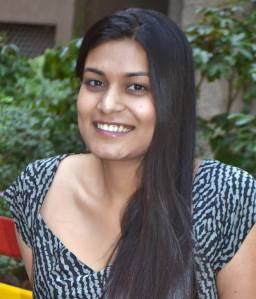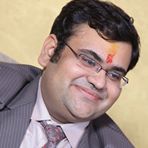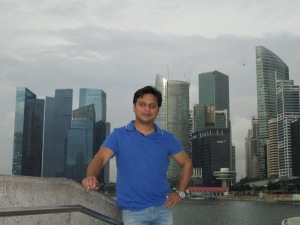 Mr. Saad Beg counts himself lucky that he found a campus placement with PriceWaterhouseCoopers (“PwC”). He admits that he received incredible support from faculty members at KIAMS, which made it possible to bag the job. They were there to guide him every step of the way, be it the interview stage or the video conference that sealed the deal for him. Mr. Beg started out as an Associate with the company in 2011 and hasn’t looked back since. He has found his strength in Transfer Pricing, a field he specializes in.
Mr. Saad Beg counts himself lucky that he found a campus placement with PriceWaterhouseCoopers (“PwC”). He admits that he received incredible support from faculty members at KIAMS, which made it possible to bag the job. They were there to guide him every step of the way, be it the interview stage or the video conference that sealed the deal for him. Mr. Beg started out as an Associate with the company in 2011 and hasn’t looked back since. He has found his strength in Transfer Pricing, a field he specializes in.
Talking about his current job profile, which has him based in the PwC office in Gurgaon, Mr. Beg says, “I work as a Transpricing consultant. The transfer pricing domain has gained impetus in the recent past especially due to globalisation of the Indian economy. A plethora of new companies are investing in India while several Indian companies are investing in subsidiaries abroad. At times like these the companies are required to price the inter group transactions, which is when transfer pricing as a domain gains importance.
He further goes on to add “The tax authorities of each of the countries want to ensure that there is no base erosion of the profits and that the appropriate income is being offered to tax. Considering the same, the transfer pricing regulations have been formulated. Our job as a transfer pricing consultant is to help the multinational groups to determine the arm’s length price (a price which would be charged between two independent companies which do not have any common control).”
There is definitely a lot to learn about Transfer pricing market, and Mr. Beg doesn’t disappoint in his talk about the key aspects of his department: “There are three aspects involved: an annual compliance report that is a mandatory requirement prescribed under the Indian Income Tax Act, 1961; Second, the assessment proceedings and the subsequent litigation that arises when the arm’s length price has to be justified before the revenue authorities; and lastly, but the most important are the planning projects, wherein we helps the company in structuring a transaction, determine the billing models, setting up a pricing mechanism, etc.”
Over the years, Mr. Beg has worked with some top tier companies like Religare, Bain & Company, , Ranbaxy, Pepsi, etc. He worked in an industry that was vital to the transition phase of the Indian economy, and he has now seen the Indian economy come into its own on the global stage. But how will FDI (Foreign Direct Investment) affect the price regulation? He ponders the question before offering insight: “With the new Government, there are expectations and incentives for the manufacturing business, especially with FDI coming in and we are hoping that there will be a growth in the market and economy.”
Price Transfer seems like a niche field, but Mr. Beg was drawn to it and has made it his own. For students who are interested in a career in the field, he has some valuable inputs. “It is an interesting profile; if you are looking for a consulting profile, then you get a feel for that” he says. “Transfer pricing might start out being about taxes, but it goes much beyond that and covers various aspects of business. It was earlier perceived that the job can be done by a CA, but that notion is changing globally and in India as well. There is a lot of scope.”
Mr. Beg has managed to win recognition for his work with the company. He was promoted within a year of joining PwC And, when asked what the companies look for when recruiting, he says, “In addition to the academia, people who are dedicated to what they do and take responsibility for their work. .Candidates should have a ‘problem should have a problem solving attitude as it will take you far in your profession.”
These are some of the things he himself learned at KIAMS where he took on responsibilities like the role of Hospitality Representative. Mr. Beg not only turned things around for the department but for himself in the long run too. He says that he will always be appreciative of his education at the institute. In a concluding remark, he advises that all students and professionals should “Respect others and their opinions even when they differ from yours. You can’t make it an ego issue, instead, you have to come together and resolve it. That will not only help you get peace of mind, but it will also help you grow.”








